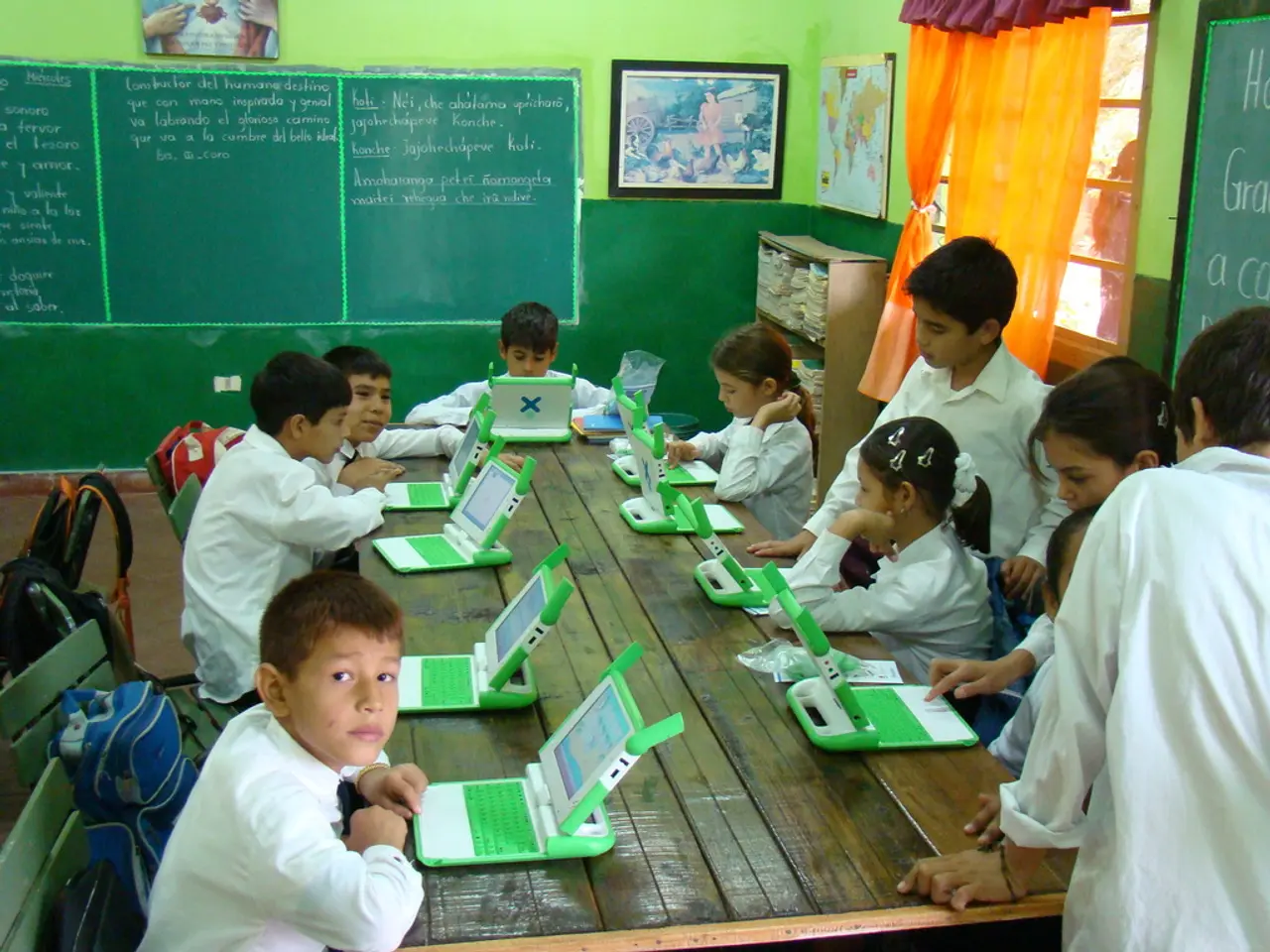Criticism Levels Towards Delayed Financial Disbursements in the Digital Pact by FDP
The disbursement of funds from Germany's Digital Pact for schools has been delayed, with bureaucratic and administrative hurdles at the regional and municipal levels being the primary cause. As of now, only 851 million euros of the total 6.5 billion euros from the federal government have been disbursed, leaving a significant funding gap.
The Digital Pact, launched in 2019, consists of four components: five billion euros for digital infrastructure, 500 million euros each for student laptops, service laptops for teachers, and IT administrators. To date, the federal states have spent 192 million euros on service laptops for teachers, 470 million euros on loan laptops for needy students, and have only called up 189 million euros from the five billion euros base Digital Pact for IT infrastructure.
The slow disbursement of funds aims to prevent misuse or incomplete implementation of funds, but has contributed to a prolonged distribution timeline. To expedite the process, the federal government has worked with the German states to simplify application and approval processes, provide clearer guidance for school authorities on fund usage, and learn from other large funding programs like the EU's Recovery and Resilience Facility (RRF).
Some stakeholders view the delay as an opportunity to better align funding plans with actual needs, resulting in more adequate and sustainable investments. However, the balance between speed and proper oversight continues to slow the fund disbursement.
Katja Suding, parliamentary vice-president, has criticised the disbursement under the Digital Pact, calling it a complete disaster. She has demanded that Anja Karliczek, the Minister of Education, takes responsibility for the slow disbursement of funds. Suding has also labelled the legislative period a lost cause for the digital equipment of schools.
This delay in disbursing funds has been considered a ministerial failure on a grand scale, with only four percent of the funds from the base Digital Pact having reached the schools after more than two years. The urgency to modernize school infrastructure digitally remains, but the balance between speed and proper oversight continues to pose a challenge.
Sources:
[1] Bundesministerium für Bildung und Forschung. (n.d.). Digitalpakt Schule. Retrieved from https://www.bmbf.de/en/digital-pact-school.html
[2] European Commission. (2020). Recovery and Resilience Facility. Retrieved from https://ec.europa.eu/info/business-economy-euro/support-business-innovation/recovery-plan/recovery-and-resilience-facility_en
[3] Stiftung Neue Verantwortung. (2021). Digitalisierung der Schulen: Verzögerungen bei der Ausgabe von Bundesmitteln. Retrieved from https://www.neue-verantwortung.org/de/news/digitalisierung-der-schulen-verzoegerungen-bei-der-ausgabe-von-bundesmitteln/
[4] Spiegel Online. (2021). Die Digitalisierung der Schulen ist ein katastrophales Projekt. Retrieved from https://www.spiegel.de/politik/deutschland/die-digitalisierung-der-schulen-ist-ein-katastrophales-projekt-a-1692751.html
[5] Tagesspiegel. (2021). Corona-Krise: Die Digitalisierung der Schulen ist ein katastrophales Projekt. Retrieved from https://www.tagesspiegel.de/politik/corona-krise-die-digitalisierung-der-schulen-ist-ein-katastrophales-projekt/26808184.html
- The ongoing delay in the disbursement of funds for the Digital Pact, a policy-and-legislation initiative launched in 2019 to modernize Germany's school infrastructure, has been a subject of general news and criticism, with some stakeholders viewing it as a missed opportunity for adequate and sustainable investments in education.
- The slow disbursement of funds from the Digital Pact for schools, affected by bureaucratic hurdles and the need for proper oversight, has caused concerns among officials in the realm of politics, particularly Katja Suding, parliamentary vice-president, who has deemed it a ministerial failure and called for the Minister of Education to take responsibility.








